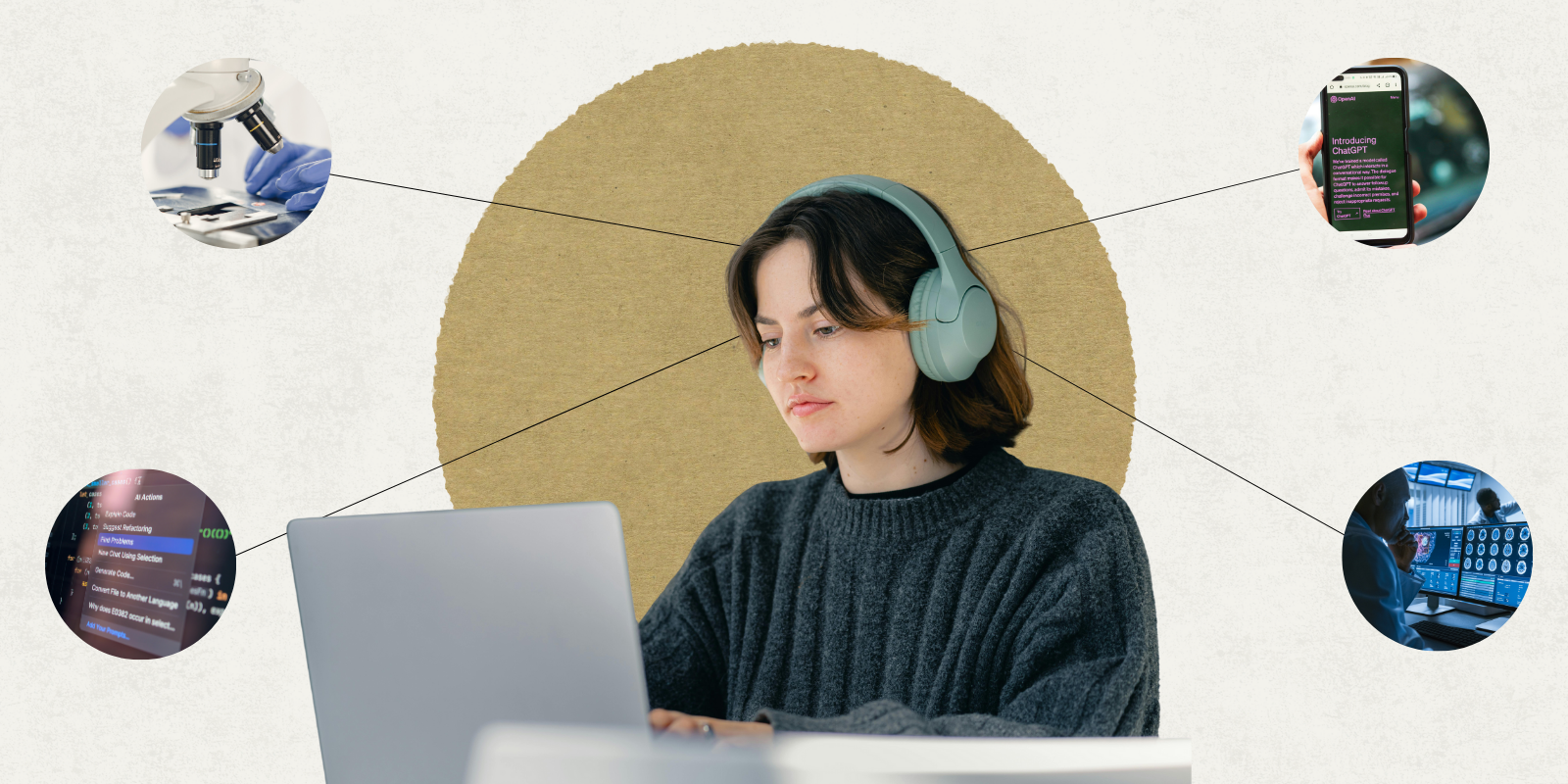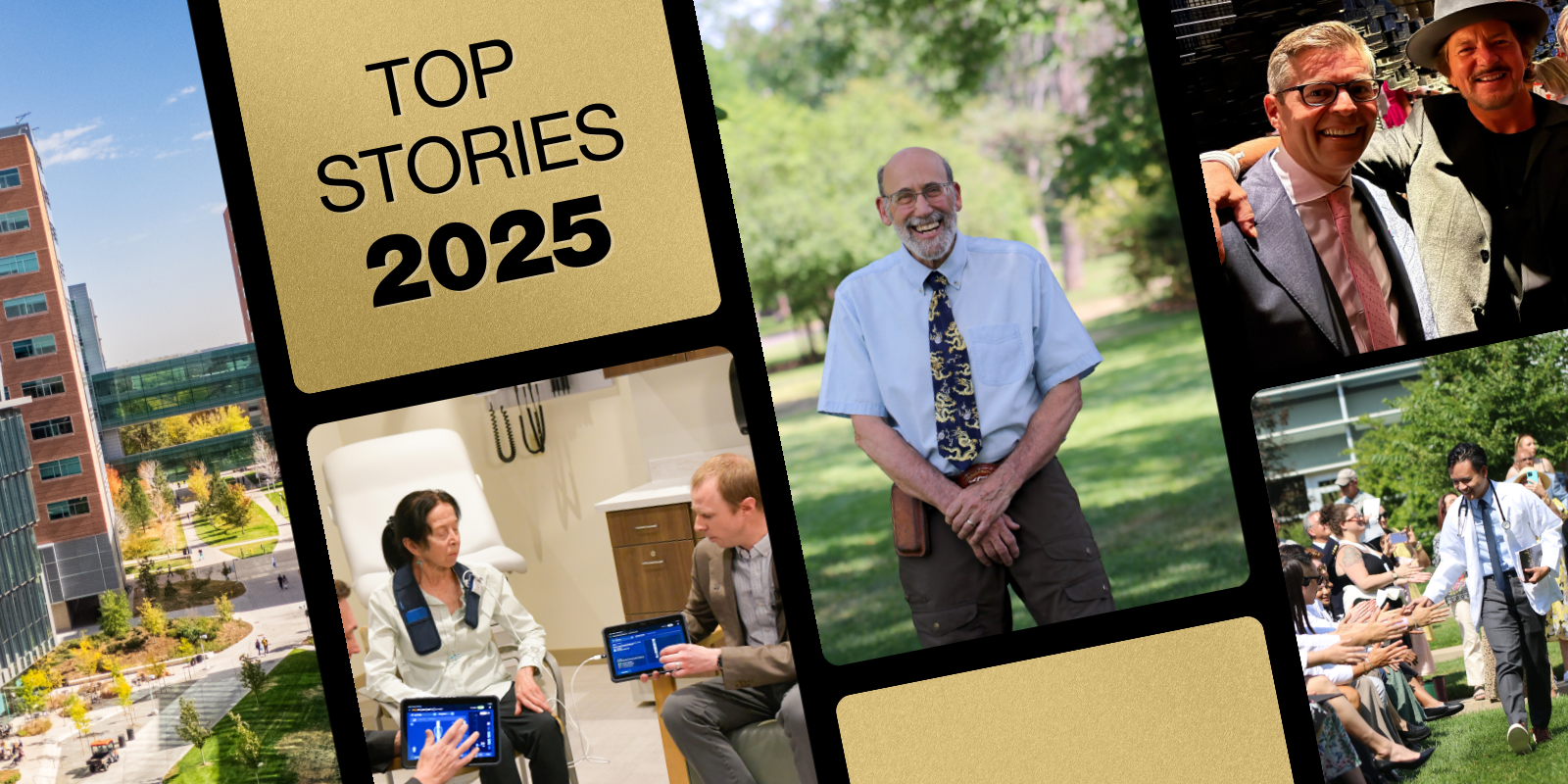Growing up and watching her dad dress in slightly mismatched suits and ties, Jasmin Torres smiled as she witnessed his fashion choices. While a fond memory of her childhood, she eventually learned her father’s fashion wasn’t a quirk, but rather a result of color blindness.
The more she reflected upon life through her dad’s eyes, Torres envisioned attending medical school after earning her undergraduate degree from the University of Colorado (CU) Boulder.
“When I got to college, that's when I started questioning things,” Torres says. “I started remembering my dad's color blindness and really sitting with this notion that we have these bodies that work fundamentally the same, but sometimes they don't. We could look at the same exact thing, but he'll perceive it completely differently. That just blew my mind.”
During her undergraduate career, Torres worked with mentors at the CU Anschutz Medical Campus and felt a sense of belonging so strong that she applied to only two medical schools, with the CU School of Medicine as her top choice.
“Over and over again, the CU School of Medicine hand-picks very specific people that feel like my people,” she says. “They are so welcoming and warm but also very intelligent. Being on campus and being involved with the premier programs, medical students, and physicians at the School of Medicine, it was such a positive experience that I didn't feel the need to look for anything else.”
Breaking access and equity barriers in patient care
As a first-generation college graduate and medical student in CU School of Medicine’s Class of 2024, Torres is personally motivated to make health care more accessible and approachable for underserved communities, as well as immigrants like her parents.
Torres has lived in Colorado Springs for most of her life, but her parents are from Mexico. Her father speaks English, but her mother does not, and she’s watched how this affected their experience in medicine and the health care system.
“I remember going to doctors’ visits and there being this barrier,” Torres says. “A lot of times what the doctors would tell my parents would be dismissed because they didn’t trust them at the end of the day. The more that I learned about how clinic interactions work, I started seeing how it is such a big problem that we can't always speak to patients in their own language, and that puts up a barrier.”
Torres believes breaking this language barrier would not only increase trust, but also minimize misunderstandings that affect the overall quality of care.
“To have providers that speak to patients in their languages should be the gold standard,” she says. “Being someone of color, someone who speaks a different language, going into the medical field, I can directly interact with patients and have an impact on their quality of care. Increasing the amount of historically underrepresented students and professionals in the medical field will do the same thing.”
One way Torres is already acting on her mission is through her role as co-president of The Latinx Medical Student Association (LMSA) at the CU School of Medicine. She joined the organization to connect with others in the Latino community on campus and to get involved with initiatives that benefit the greater Latino community.
“I was part of a similar organization at CU Boulder, and I loved it. Being a first-generation student and one of the few people of color on campus who did not come from money was very different from others at CU Boulder,” Torres recalls. “It was a huge support system for me, so to be able to have that in medical school was definitely appealing and drove me to work toward something to better the Latino community here in Colorado, as well as other allied and underserved communities, too.”
In partnership with LMSA and RE:Vision Coop, her participation in a COVID-19 Vaccine Equity Clinic became her most meaningful memory of 2021, helping administer 300 vaccines to underserved communities living in Metro Denver.
“When we worked on that vaccine clinic, that was us coming together and doing something that was very appropriate for the time and very much needed,” she says. “It was awesome to be able to be the one actually administering those vaccines to patients who we know are disproportionately affected by COVID-19 and being able to do so in a way that connected with them in their language and have my other peers there, too. I speak Spanish, so I was able to answer their questions about the vaccine.”
From COVID to clerkship
Upended by the global pandemic, Torres began her studies virtually at the CU School of Medicine.
“In the beginning, I honestly was extremely upset about not having the White Coat Ceremony because, when I was working toward getting into medical school, I knew how incredibly competitive and difficult it was. I am a big believer in visualization, so I would literally visualize the White Coat Ceremony whenever things got hard,” Torres recalls.
“But the thing that has been really inspiring was my class being very cohesive,” she continues. “We were all going through this together, and I felt this immense sense of community even though we weren't seeing each other in person. We're really going through this right now during our first years of medical school, but we're in this together and we're doing it.”
She’s optimistic as she prepares for clerkships to start, gravitating toward surgical interests with a current emphasis on ophthalmology. She’s taking some COVID-inspired lessons with her.
“Sometimes we get into this routine of predicting what life will be like, what our day-to-day will look like, and, frankly, nothing is certain,” Torres says. “Anything can change at any moment, and that also shows the importance of being grateful for what we do have.”



